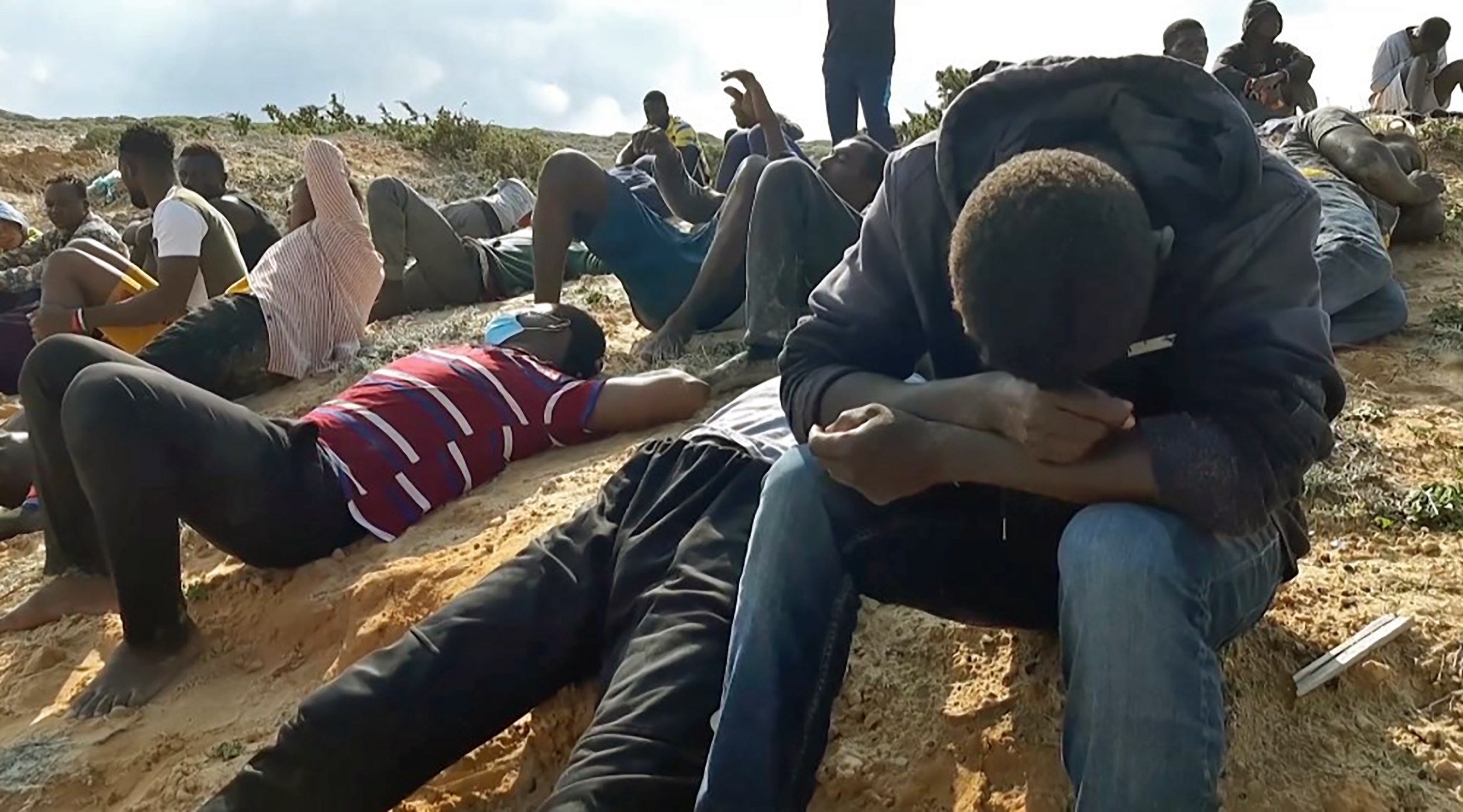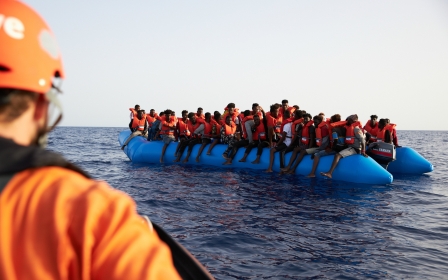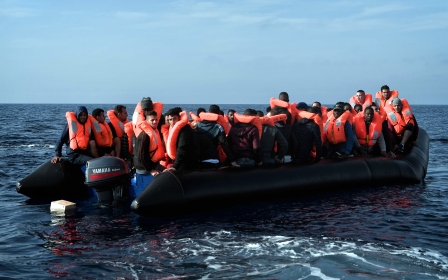Nearly 100 dead in two shipwrecks off Libyan coast

Two shipwrecks off the Libyan coast killed nearly 100 people on Thursday, the United Nations and Doctors Without Borders (MSF) said.
A further 70 people attempting to cross the Mediterranean to Europe are stranded in a dinghy and have issued a distress call.
In the first incident, the UN's International Organisation for Migration (IOM) reported "a devastating shipwreck which claimed the lives of at least 74 migrants” off the coast of Khoms, a port city 120 kilometres east of the Libyan capital Tripoli.
It said that 47 survivors had been brought back to shore and 31 bodies retrieved, adding that the boat was reported to be carrying more than 120 people.
Later on Thursday, MSF said on Twitter that 20 people drowned in a separate incident in the northwestern coastal city of Sorman. The group said two women are the lone survivors of the shipwreck.
New MEE newsletter: Jerusalem Dispatch
Sign up to get the latest insights and analysis on Israel-Palestine, alongside Turkey Unpacked and other MEE newsletters
"Rescued by local fishermen, they were in shock and terrified; they saw loved ones disappear beneath the waves, dying in front of their eyes," the group said.
Alarm Phone, an organisation offering independent support for people crossing the Mediterranean Sea to the EU, confirmed the death of 20 people who were on a boat that had called them for help.
“We lost contact to them but repeatedly requested a search and rescue operation by EU authorities. In vain. They decided to let them drown. Our hearts are broken.”
Alarm Phone also said that a group of more than 70 people, including two babies, are currently on a dinghy off the coast of the Italian island of Lampedusa and have made a distress call.
The IOM said that so far this year, at least 900 people have drowned in the Mediterranean trying to reach European shores - some due to delays in rescue.
More than 11,000 others have been returned to Libya, it said, "putting them at risk of facing human rights violations, detention, abuse, trafficking and exploitation".
Human traffickers have taken advantage of persistent violence in Libya since the 2011 overthrow of Muammar Gaddafi, turning the country into a key corridor for migrants fleeing war and poverty in desperate bids to reach Europe.
While many have drowned at sea, thousands have been intercepted by the Libyan coastguard, which has been backed by Italy and the EU, and returned to Libya.
They mostly end up in detention, often in horrific conditions.
Middle East Eye delivers independent and unrivalled coverage and analysis of the Middle East, North Africa and beyond. To learn more about republishing this content and the associated fees, please fill out this form. More about MEE can be found here.




